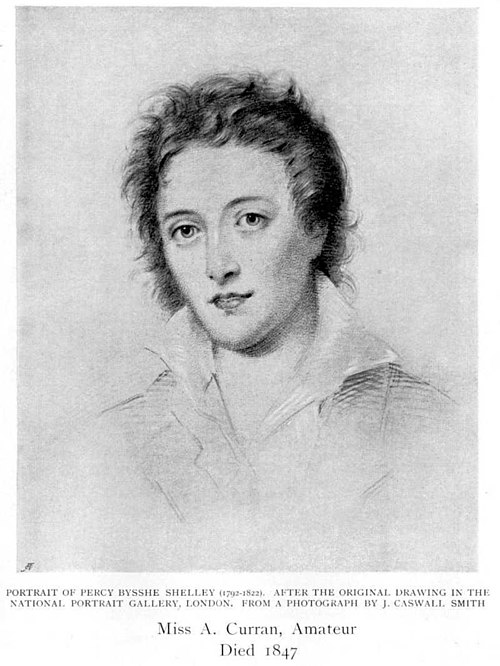PERCY Shelley, celebrated today as a Romantic poet of rare brilliance, was once considered a dangerous subversive.
A new play at Upstairs at the Gatehouse in north London reimagines his life not just as poetic legend but as political dissident – and explores the resonance of his story in our age of surveillance capitalism.
Regarding Shelley, written by Richard Bradbury and directed by Jack Herlihy, opens with Shelley and his young wife Harriet fleeing Ireland, having supported a failed rebellion and a campaign for Irish emancipation that made them enemies of the state.
Hounded by the Home Secretary’s watchful eye, the couple attempt to start again in North Devon – but the forces of state suspicion continue to haunt them.
 Percy Bysshe Shelley by Amelia Curran
Percy Bysshe Shelley by Amelia CurranThe play asks a stark question: what does it mean to live and love under constant observation? And what can the story of a 19th-century revolutionary teach us about the digital scrutiny of the 21st?
Bradbury, whose previous play Become a Man explored slavery’s legacy through the story of Frederick Douglass, returns to his central theme – how the past informs the present – with biting clarity.
Herlihy, hot off the success of 1984 on stage in London and across Europe, brings Orwellian tension to Shelley’s radical tale.
 Director Jack Herily
Director Jack HerilyBlending historical drama with contemporary political unease, Regarding Shelley imagines a world not so different from ours – one in which radicalism is a threat, surveillance is ubiquitous, and the line between public safety and personal freedom is as fraught as ever.
Shelley’s time in Ireland
LONG before he became one of the towering figures of English Romanticism, Percy Bysshe Shelley—radical, restless, and barely 20—landed in Dublin in 1812 with revolution on his mind. It was not a literary pilgrimage but a political one: Shelley had come to campaign for Irish independence, armed with pamphlets, ideals, and possibly something of a shaky grasp of Irish realities.
Shelley’s six-week stay in Dublin is often overlooked in accounts of his life, but for the poet himself, it marked a formative experience. Deeply influenced by Enlightenment thinkers and the republican ideals of the French Revolution, Shelley saw Ireland’s struggle for independence as a cause worthy of support — namely, his support. In his own words, he believed Ireland could be “an arena for the operations of reason and virtue”.
Shelley and his young wife, Harriet Westbrook, set up lodgings near the city centre and wasted no time in producing and distributing political tracts. Chief among them was An Address to the Irish People, a pamphlet he penned urging Catholic emancipation, non-violent resistance, and unity between Protestants and Catholics. It was direct, impassioned—and largely ignored.
 Ella Dorman-Gajic plays Harriet Shelley
Ella Dorman-Gajic plays Harriet ShelleyShelley also attended and spoke at a public meeting in Fishamble Street, though contemporary reports suggest his reception was lukewarm at best. He struggled to gain the trust of Irish activists, who regarded the privileged English youth with suspicion. Shelley’s efforts, though earnest, were often politically naive. He misunderstood the depth and complexity of Ireland’s grievances and the caution bred by centuries of colonial oppression.
Despite the limited impact of his mission, the visit left its mark. The themes of liberty, justice, and resistance to tyranny that Shelley explored in Dublin would echo throughout his poetry in the years to come. His Irish adventure may have been brief and somewhat quixotic, but it crystallised a sense of moral purpose that would define his writing until his early death a decade later.
In an age when Romantic poets are often remembered for clouds, cliffs and the odd Grecian urn, Shelley’s brief encounter with Irish politics is a reminder of how engaged—even idealistically so—these writers could be with the world around them.
And if nothing else, it proves one thing beyond doubt: the Irish question has never lacked for passionate supporters—even from the ranks of England’s literary elite.
Regarding Shelley runs at Upstairs at the Gatehouse, Highgate, London N6 4BD from May 20–25, 2025 For tickets click here.

